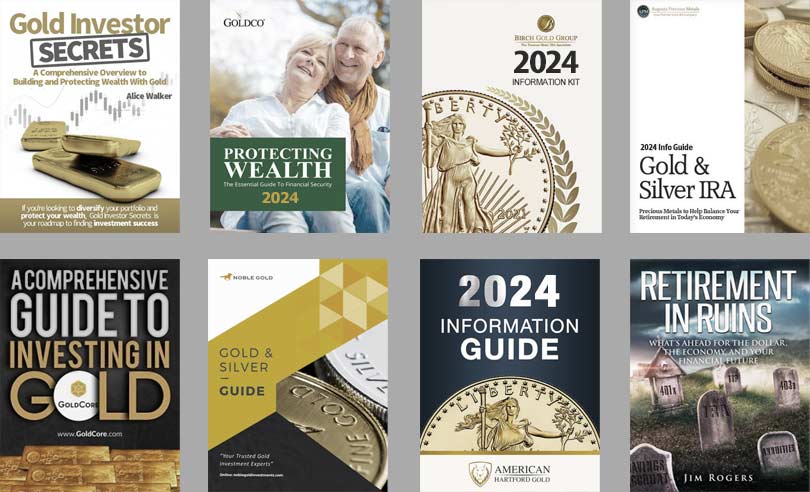Insatiable central bank gold demand this year could drive prices to $3,000
 Bullion.Directory precious metals analysis 15 May, 2023
Bullion.Directory precious metals analysis 15 May, 2023
By Peter Reagan
Financial Market Strategist at Birch Gold Group
This time, though, was different. During the twelve months of 2022, the official sector bought 1,136 tons of gold, either the largest annual purchase in history or the most since 1950 (you know, back when the world was on the gold standard).
Why so much gold buying, and why now? This analysis raises a few good points. This central bank gold-buying surge is strange at a time when the same banks are all working on central bank digital currencies (CDBCs)…
Then again, we’ve described mergers of digital and physical gold. No one wants to make inflation even more convenient for central banks – sometimes it seems like the “printing” part of “money-printing” is all that slows them down. CBDCs eliminate the need for old-fashioned printing presses and make expanding the money supply (in other words, destroying currency’s value) even easier. Stories like Zimbabwe’s new digital gold token might be a result of trying to mitigate this concern.
That’s just speculation. Let’s stick to data.
So far this year, central banks have bought more gold year-over-year. A lot more. A 176% increase in first-quarter gold buying put 228.4 tons of gold bullion in central bank vaults. That’s the most first-quarter central bank buying in a decade.
If central banks continue or even accelerate their buying (as they have been so far), the analysis forecasts gold could reach $3,000 a lot sooner than anyone expected. After all, central banks have to buy gold from refiners, just like mints and individuals. Their insatiable appetite for gold has already affected the market, sending gold over $2,000/oz again. Central bank demand is powerful – and bankers tend to be less sensitive to gold price than private individuals. That’s to say I seriously doubt that a jump in gold’s price will dissuade public-sector buyers. (After all, it’s not their money they’re spending.)
If central bank purchases stay on this trend, can anything hold gold prices down?
Buy gold for when, not if, currencies collapse: Degussa
It seems as if it’s getting easier and easier to find grim forecasts for the modern, unbacked fiat currency system, from increasingly important names in finance. With their latest analysis on the collapse of the banking system, Degussa is a prime example.
While plenty have already rang the alarm bells, Degussa leaves a bit of optimism in their projections. They wonder if something like better regulation will avoid a banking collapse while restoring the confidence of customers and investors about the entire sector. All this, of course, would need to be backed by banks having enough capital to withstand the ongoing and worsening recession.
That’s a lot of conditions, and it’s the only “if” in Degussa’s analysis. If the scenario doesn’t suddenly take an optimistic turn with a lot of chips falling in the right places, the question of collapse becomes one of when. And it’s a collapse that will assuredly bring down the fiat system with it.
It doesn’t help that the Federal Reserve has already set the tone by bailing out SVB in March to prevent a crisis, while making it clear that trillions of dollars of stimulus are ready for a repeat. Degussa outlines how sentiment is a key factor here, as less confidence will quickly and immediately translate to less and less capital in smaller and medium-sized banks. These will, then, need bailing out to stay afloat.
As banking stocks have attested over these past months, confidence in banks hasn’t been that great. Degussa reminds investors that money printing is again the only solution available if a crisis does hit. However, the banking crisis is a global phenomenon, and we’re now talking in trillions instead of billions. In a strange development, the bailouts’ primary purpose will be to rescue the fiat system, but will of course debase the very currencies that underpin it.
Inflation or “sky-high inflation” are the outcomes of this. How likely is this? Well, we’re already being told that the Federal Reserve will pause its efforts to stabilize inflation, which isn’t nowhere near 2%. Concerns that a bout of quantitative easing will come right after are rife, and many feel like this could be the worst one yet insofar as fiat valuations go.
Degussa rounds up its overview by reminding readers that gold doesn’t have counterparty risk, unlike most assets that are bank-created or otherwise economically sensitive. Nor can gold be created on a whim with the press of a button.
Chinese banks may become the nation’s retail gold sellers
The news that Chinese banks will soon make currency interchangeable with physical gold (video) might give us in the West a bit of pause. Common sense, from the CCP?
There’s a few things to note as we unpack the story and figure out what it might mean for the gold market.
First, and this is a fact that’s rarely appreciated, China is the world’s largest gold mining country. China is often but not exclusively also the world’s largest gold consumer (sometimes India takes the top spot). Consider also that China has extremely strict export controls essentially prohibiting gold selling outside the nation. (China treats gold as another strategic resource, like oil, natural gas, copper, rare earths etc.)
Second, consider that any “private” bank in China falls somewhere between state-controlled and state-owned. This story is essentially a government initiative without clear motivations.
See, China doesn’t just add gold to its central bank reserves. China also publishes state-sponsored advertisements promoting the benefits of gold buying to its citizens. The Chinese are encouraged to view gold as an ideal store of value. In contrast, the modern Western financial system treats gold bullion as an embarrassment.
Third: One of the many reasons CBDCs have everyone concerned is that China invented them. The digital yuan is their pilot. If pervasive and utter loss of financial privacy aren’t bad enough, what about money that expires? That’s right, folks – digital money can be programmed to prevent saving. Can you think of a faster way to “stimulate the economy” than to give people money that will vanish if they don’t spend it? (By the way, this is not a new idea.)
Fourth: Expiring money is specifically a concern in China, where citizens save a higher percentage of their income than just about anywhere else on the planet. As the Washington Post lamented way back in 2012, “Chinese remain among the world’s stingiest consumers. Household consumption in China accounted for a paltry 35 percent of the overall economy in 2010, compared with 71 percent for Americans and 57 percent for Europeans.”
Thrift as a virtue? Saving for the future as an act of personal responsibility? Nope, sorry, that’s old-fashioned.
Now, let’s assemble the pieces…
By offering citizens the ability to swap digital yuan for gold bullion at their neighborhood bank, the Chinese government can force its citizens to spend money and save money at the same time.
Personally, I despise communism and believe economic central planning inevitably fails. But even a broken clock is right twice a day…
The latest report tells us this isn’t a plan — it’s already live. Investment-grade gold bullion is available at Chinese banks in weights starting at 10 grams (about 1/3 troy oz), at a low premium over spot price. And it’s even gift-wrapped.
Skeptics, like me, will point out this will allow the state to closely monitor who owns gold and how much they have. This is true! (Jewelers and other retailers are unlikely to go obsolete for those who want to own gold without a tracking number on it.)
I suspect it’s a rare win/win for the Chinese citizen. During a time of open and enthusiastic de-dollarization, I have to wonder if this isn’t yet another way to discourage anyone in the nation from holding U.S. dollars as a “store of value.”
Peter Reagan

Peter Reagan is a financial market strategist at Birch Gold Group, one of America’s leading precious metals dealers, specializing in providing gold IRAs and retirement-focused precious metals portfolios.
Peter’s in-depth analysis and commentary is published across major investment portals, news channels, popular US conservative websites and most frequently on Birch Gold Group’s own website.
This article was originally published here













Leave a Reply